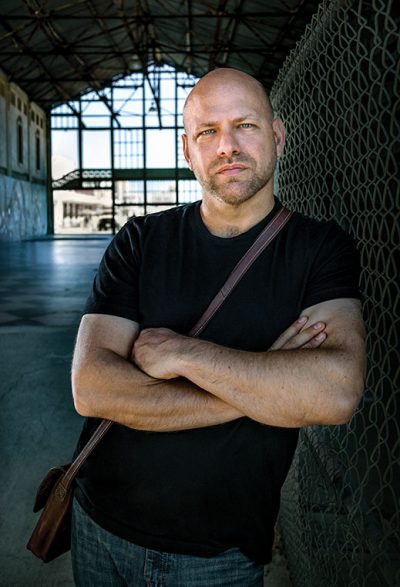
New Jersey Monthly: What’s your earliest memory of Springsteen’s music?
Azzan Yabin Israel: In Cleveland, which was a huge Springsteen town. When I was a junior in high school, every Friday afternoon at 5 pm the local rock station would kick off the weekend with “Born to Run.”
NJM: Was there a spiritual aspect to his music for you?
AYL: I’m Jewish, but I consider myself secular. And I think that’s one of the things that draws me to certain aspects of Springsteen’s writing. He focuses on moments of sin, grace and redemption that can occur outside of a traditional religious context.
NJM: Why Springsteen?
AYL: I really didn’t want to write about Dylan. That’s been done to death. Bruce was a more surprising choice. You start seeing interconnections between songs and the religious phrases in them. Songs about the struggle within, where people have to decide whether they’re going to embrace their better selves and be redeemed, or give in to fear or hatred or other negative emotions.
NJM: How would you describe your book?
AYL: I’m trying to map out the role biblical and theological motifs play in Springsteen’s music. But writing the book, I’ve come to appreciate his writing in ways I hadn’t until I sat down with the lyrics and started working on it.
NJM: How so?
AYL: For example, a song like “Adam Raised a Cain.” Obviously you’ve got biblical elements there. But it’s even more interesting—a song about original sin passed down through the violence between fathers and sons. When you look closely, it becomes a much more complex theological statement.
NJM: What will Springsteen fans get from this book?
AYL: I’m looking at his writing the way you look at the writings of a poet, and that allows fans to gain insights and new appreciation for his work they might have otherwise never considered.
NJM: Have Springsteen’s songs been misunderstood?
AYL: There’s tremendous cultural resistance to the idea that he’s a serious writer. But the fact that Springsteen writes about simple people does not mean he’s a simple writer. The writing is much more self-consciously poetic.
NJM: How do most people think of his songs?
AYL: There’s kind of a cult of Springsteen. People want to use the songs to get connected to the man. But I think it’s way more interesting to think of Springsteen as a writer struggling with traditional religious categories in a world no longer anchored to religious institutions.
NJM: Is there one album that best fits that mold?
AYL: I would say the pairing of Born to Run and Darkness on the Edge of Town. Those are two sides of Springsteen’s theological work. Born to Run is exuberant, with promises about how getting out of town will bring a type of redemption. The flip side is Darkness on the Edge of Town, which denies that possibility.
NJM: Will you be writing more about Bruce?
AYL: I can see additions to the book as future albums come out. It’s interesting that he’s got a new album that’s a companion to his autobiography. It’s called Chapter and Verse. Kind of a biblical name, wouldn’t you say?
